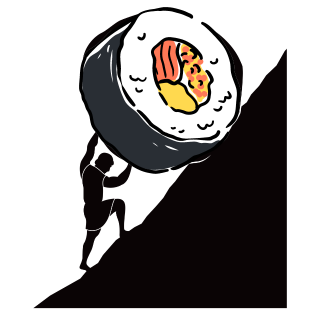Your Learning Framework
"The capacity to learn is a gift; the ability to learn is a skill; the willingness to learn is a choice." - Brian Herbert
Learning how to learn is one of the most important skills you can master in your lifetime. It saves you countless hours, fuels tremendous personal and professional growth, and is a simple but powerful way to set yourself apart in any field. And yet, it’s a skill rarely taught, seldom practiced, and almost never intentionally refined. While a quick search will reveal dozens of frameworks developed by educators and professionals over the decades, most people never stop to customize one to fit their lives. The intent of this article is to provide you with tools to build your own personalized framework, tailored to your needs, goals, and motivations.
After studying dozens of learning models, I’ve identified five core aspects that consistently show up across the most effective ones. These pillars form the foundation for any high-impact learning system and will be the starting point for your framework.
Identity
Why are you learning this topic in the first place? What do you hope to get out of it? How does this align with your long-term goals or the person you aspire to be?
Don’t treat learning as a task or a checklist item. Think of it as the process of becoming someone more capable, knowledgeable, and intelligent. Even mundane topics can add a bit of helpful knowledge or provide the opportunity to refine your learning process.
When your learning is connected to a version of yourself you aspire to, it becomes easier to stay consistent and driven. Motivation can easily fade when learning feels disconnected from who you want to become. But when learning aligns with your identity, consistency comes naturally.
Action
High-action is essential and everyone knows it. There’s a reason top performers in every field (athletes, musicians, artists, academics, etc.) practice consistently and relentlessly. There’s a reason why experience is so highly valued in the professional world. You need to be doing, not just thinking.
To accomplish this, you need to be courageous and accept failure and iteration as a tools, not sources of shame. Own it. Remind yourself you’re doing this to grow, and move on. Remember, most people are too focused on their own lives to notice or care about your stumbles.
If you really want to accelerate growth, consider a Forged in Fire approach: jump into an actual project or goal that has some real stakes. Rely on what you currently know to hold you afloat while you rapidly fill the gaps in your knowledge. This method is intended to be stressful and introduce urgency, however it is highly effective.
Reflection
Progress must be measurable to be effectively analyzed. Consider keeping journals, using trackers, or setting benchmarks/deadlines.
Build in feedback loops in between actions that allow you to adjust and course-correct.
Take the time to review mistakes and make sure you understand what went wrong and why. This is one of the most important steps, it’s what makes your actions meaningful and your progress intentional. Every mistake is a way you can grow if you are willing to learn from it.
Progression
Start with mastering the basic concepts and let these be the building blocks towards your greater understanding. If the problem is complex, break it down into its simpler components. Make sure that you know the fundamentals inside and out and can apply them to unfamiliar scenarios.
Use ‘training wheels’ (cheat sheets, guides, or coaches) early on, but aim to outgrow them. These resources are very useful and can be helpful throughout your life when used intentionally, But if you really want to master a subject, you should be able to tackle it with your own capabilities.
Don’t underestimate the power of sleep and spaced repetition, rest is critical to memory consolidation and breaks are necessary for consistency.
Personalization
Experiment with different methods and adapt your framework to your preferences. Learning tends to stick when it’s tied to your passions and core motivations.
If you can, choose projects that you are actually interested in. If you don’t have that choice, still take the time to refine your frameworks, it’ll benefit you once you are on the projects you care about.
Strive to be able to explain a concept to someone you care about (a friend, child, or partner). This not only deepens your understanding, but also sharpens your communication skills and helps others grow too.
Finally, keep your progress and your goals to yourself, don’t tell anyone else. Research shows that the simple act of telling others about your goals, especially identity-related ones (i.e. learning or personal development), can lead to less action taken to achieve those goals.
Pitfalls to Avoid
Passive Learning: don’t rely on absorbing knowledge through osmosis or thinking that you will learn without trying. This is an excellent way to gain one year’s worth of progress after five years of experience.
Pure Mileage: mindless repetition for the sake of clocking those “10,000 hours” rarely leads to mastery and is an inefficient use of time. Deliberate practice with clear goals, feedback, and continuous improvement is what builds real skill. So make sure you are getting lots of it.
Pure Theory: books, lectures, and videos are helpful in building a foundation of knowledge, but they are insufficient on their own. Many times reality differs from theory and being able to properly execute is what really matters. Understanding concepts is only half the equation, you have to apply them, test them, and refine them through action.
Build the right system, stay consistent, and there’s very little you can’t master.
